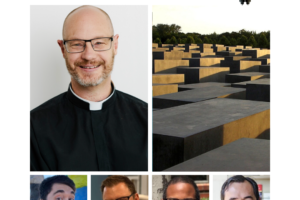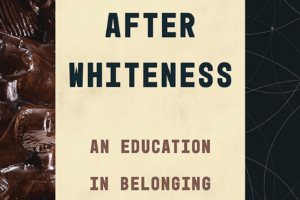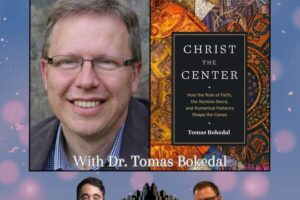This year on the 24th of April, Armenia remembers the 97th anniversary of the displacing of 250 influential Armenian citizens from the Ottoman capital city in 1915. This event was the pivotal beginnings of what would be later called the Armenian Genocide. During the Genocide, which took place from 1915 to 1923, Turks massacred two thirds of the Armenian population. That was nearly one and a half million Armenians. These murders were implemented through the displacement of the Armenian people on a traitorous journey that was intended to kill as many people as possible. Though many authorities and historians recognize these events as genocide, the current Ottoman Empire denies the use of this term to describe the events.
As an Armenian American, The Great Crime is something that looms heavy among my family and myself. It is rarely discussed openly at our regular family reunions but without question is an integral part of our history. The Naman family, of which I am a proud member, would not have migrated to the United States if it were not for these events. So any discussion of the “motherland” and our family lineage implicitly acknowledge these horrific events from the early 20th century. I know that this is the case for many other Armenians that I have met. Every family has its own account of how their family survived this time. I am always interested in hearing other Armenian family’s stories.
I am going to step out on a very thin and fragile limb and give my thoughts on how the Armenian genocide has been a positive for me. Being as I have not experienced the horrific suffering that took place, I understand that I am probably being overly optimistic when considering all of the evil events that have historically come from those eight years and after.
(1) The first positive that I experience from this is the deep sense of history of my people. My family reunions are not just times of visiting with cousins, but intense historical discussions. The Namans take our history so seriously that with some amount of certainty we can trace our lineage hundreds of years prior to the genocide. And these are not minute details, but details like the vocations and living situations of our distant relatives. This has no doubt given me my love for history and why I have chosen the study of history and theological ethics as a major part of my future career. I hope to follow in the line of family historians that will keep tradition and knowledge alive in Namans to come.
(2) At our family reunions there is always a giant family tree that is displayed for everyone to see. As a child I used to love finding my name on the tree, and with my finger follow the names past my parents, past my grandparents into a world of unknown family members. I still like to do this at reunions. As an outcome of my family’s intense interest in history and the constant visual of that family tree in all its many branches, I get the sense that I am part of a bigger picture, a timeline that goes further back than 1776. My identity is not wrapped up in being an American, but a Christian and an Armenian. (In 301, Armenia became the first Christian Nation, under king Durtad.) I understand that my actions have consequences with effects that last beyond my lifetime. I am a small part of a long history, and this plays into the way I make decisions and in the things that I value.
(3) Because of the suffering of our families, Armenians have an instant connection. Whenever I meet another Armenian, without saying anything outside of “nice to meet you,” I immediately get the sense that I am meeting a family member. I feel like I have family all over the world and that we will take care of our own. Whenever I see, or hear, an –ian at the end of someone’s surname, there is always an instant relationship. I think the stories of suffering have instilled this in my generation of Armenians. We have been a suffering people, thus giving us the almost tribal need to take care of each other.
So on this day of remembering a horrible and tragic event, I will choose to be thankful. First, because I believe God, nearly a hundred years ago, preserved the Naman family and delivered us from suffering and death in our home land. Second, I will be thankful, that these events have played such an important place in my spiritual, educational and moral development. Third, that I have a family and tradition I am pleased to say that I am a part. Lastly, I will thank God, that because of the decisions of those Namans that came before me, I am alive.
Nathaniel Warne is currently a Ph.D. candidate at Durham University U.K. where he is studying theological ethics and political philosophy. He is currently studying under Christopher J. Insole and Alec Ryrie. Nathaniel received a B.S. in Art (painting and drawing) and minored in Biblical Studies at Biola University. After receiving his undergraduate degree, Nathaniel spent three years as a professional session drummer. He then received an M.A. from Talbot School of Theology in moral and historical theology. He wrote his masters thesis on 16th century Geneva and its political influence on John Locke. Nathaniel was also a minister at Grace Evangelical Free Church, La Mirada before moving to Durham. He has been married to his beautiful wife Charissa for five years. Nathaniel’s primary academic interests are: theological ethics, political philosophy, intersection of metaphysics with ethics, especially with regard to haecceity and modality, Puritan’s doctrine of calling, theology of work, history of natural law, Aristotle, and Søren Kierkegaard. He also enjoys reading: John Locke, Karl Barth, Philosophy of Aesthetics, and Literature of all sorts. Some hobbies of Nathaniel’s are playing and listening to music (jazz, folk, rock, hip-hop), cooking, enjoying foreign and domestic beers, and watching Fringe, 30 Rock, Big Bang Theory, and The Cosby Show with his wife.
Nathaniel can be reached at: n.a.warne at durham.ac.uk





Leave a Reply
Your email is safe with us.